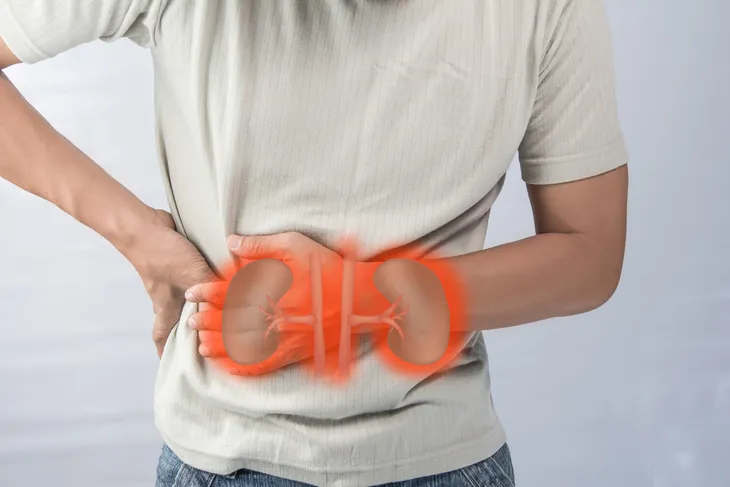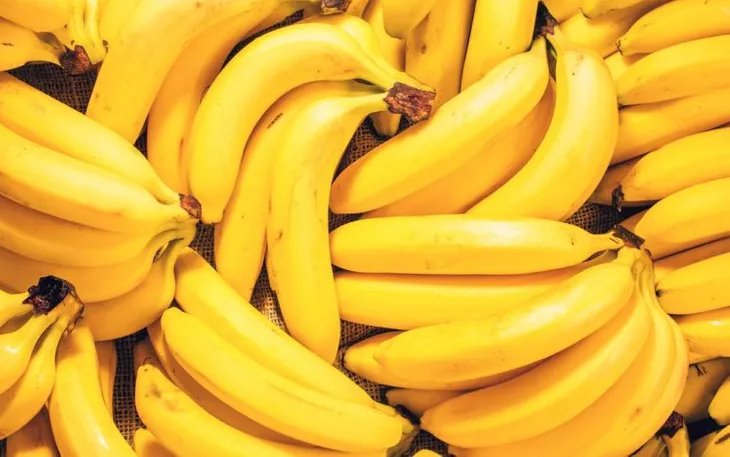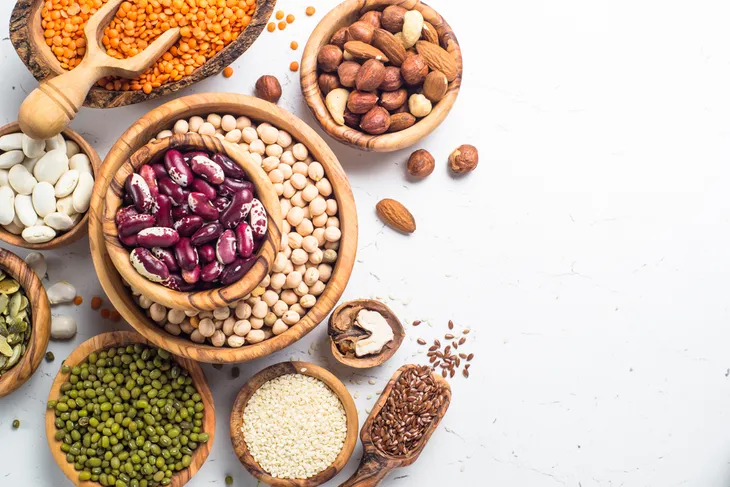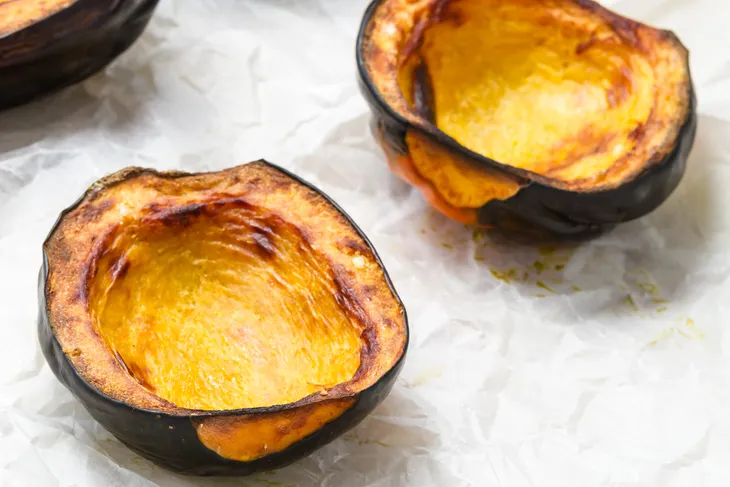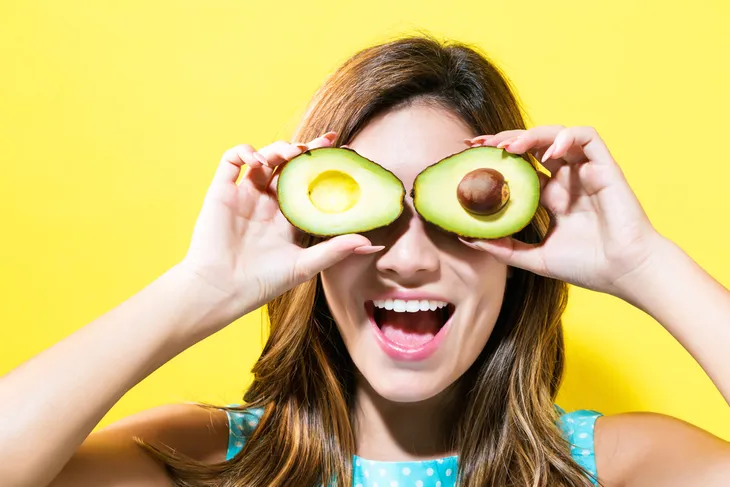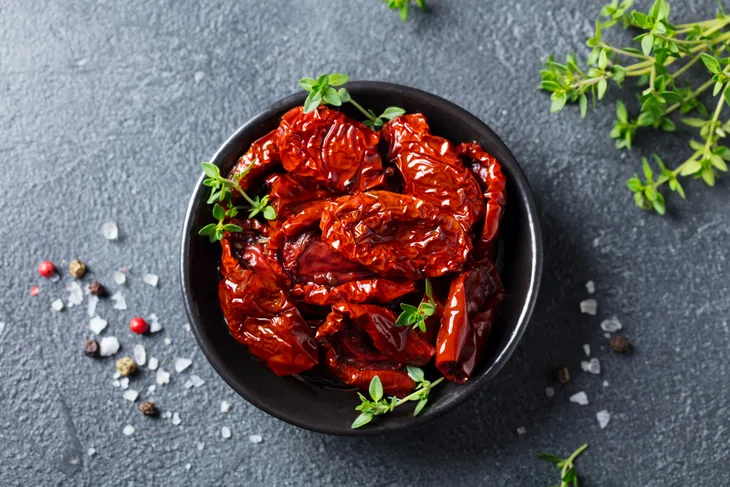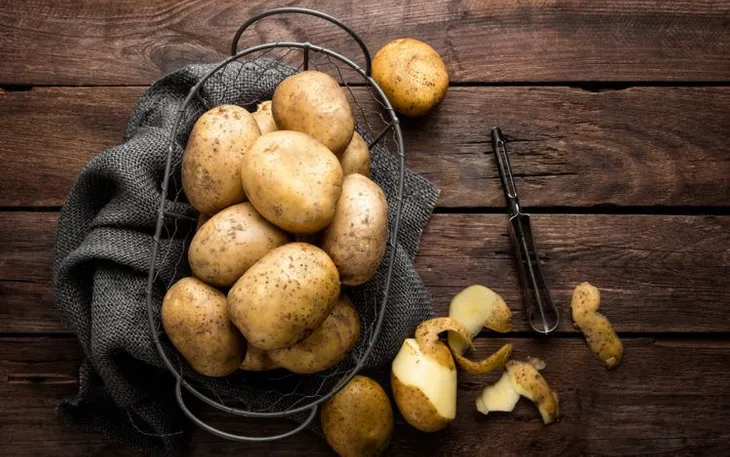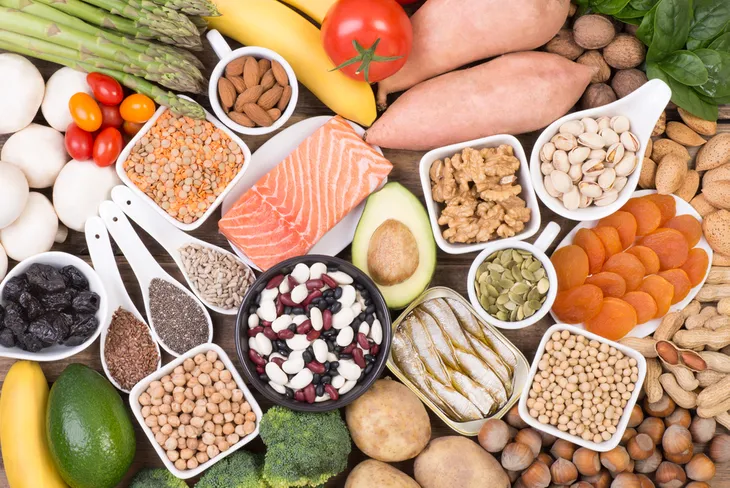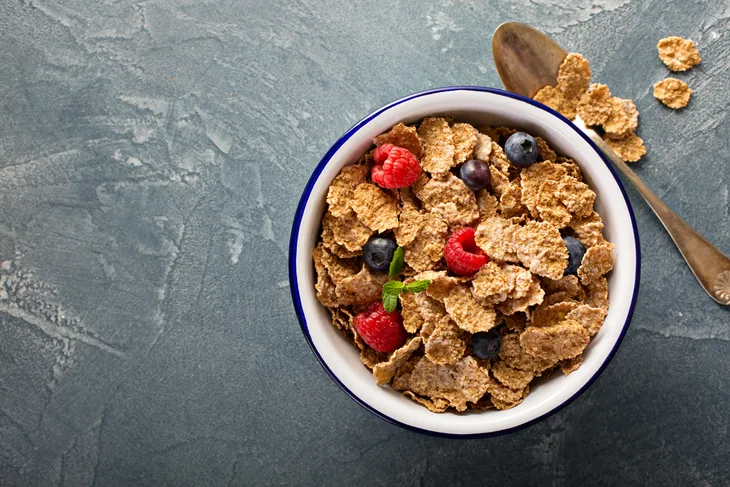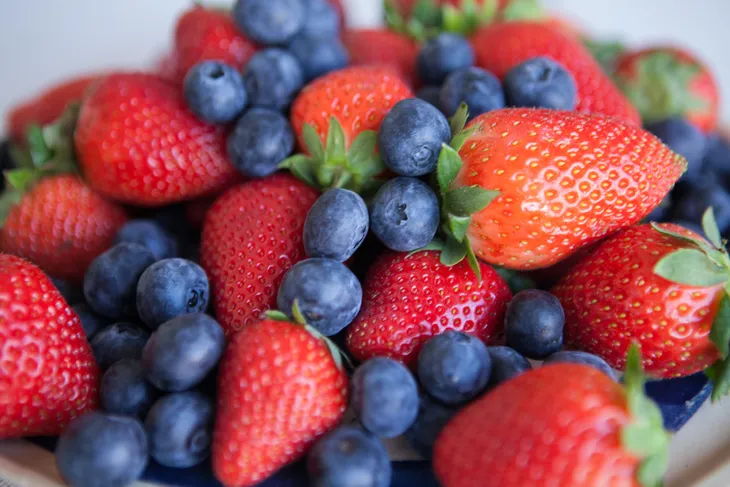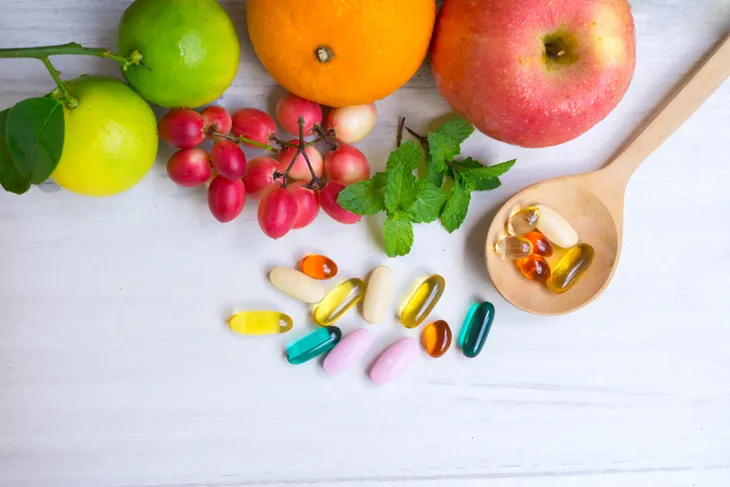We often associate potassium with bananas, but in reality there are plenty of other potassium-rich foods. Some of these foods even have more potassium than a banana! This mineral is crucial for organs such as the heart and kidneys. A diet low in potassium can lead to high blood pressure, stroke, arthritis, cancer, digestive disorders, and even infertility. People with too much salt in their diet may also benefit from increasing their potassium intake, as this is thought to offset some of the damage done by a high-sodium diet.
Just as too little potassium can be bad for you, having too much in your bloodstream can be dangerous. Once our body has used everything it needs to function, excess potassium remains in the blood and is removed as waste via the kidneys. For this reason, people with chronic kidney disease or similar kidney problems should avoid consuming too much potassium. In extreme cases, very high potassium levels can cause cardiac arrest.
Want diet & nutrition content delivered straight to your inbox? Sign up for our exclusive diet & nutrition newsletter!
How Much Potassium Do I Need?
Current dietary advice suggests that healthy adults should consume between 3,500 and 4,700 mg of potassium daily. Women require marginally less potassium than men. As such, they can get by with a daily intake towards the bottom end of this scale. Unfortunately, most Americans do not consume anywhere near enough potassium and could be risking their health as a result.
Keep in mind that your doctor may recommend a lower potassium intake if you have:
- Heart disease;
- Kidney problems, or;
- Any chronic illness which may be worsened by a high-potassium diet.
High-Potassium Foods
Any food that contains more than 200 mg of potassium per portion is considered to be “high-potassium”. Very high potassium foods are those which contain more than 300 mg.
Below are some of the best dietary sources of potassium. We have only included whole, non-processed food items within the table, as a diet high in whole foods best promotes overall health.
To ensure a healthy diet rich in potassium, be sure to eat these 5 potassium-rich foods that will help ward off depression, insomnia, heart disease, stroke, and high blood pressure to boot…
1. Beans
Beans, beans, they’re good for your heart, the more you eat…the most potassium you’re getting (so get your mind out of the toilet). Choose your favorite bean—from kidney bean to black bean or from navy bean to pinto bean to pack more potassium into your meals.
While kidney beans boast the highest amount of potassium per cup serving (at 700-milligrams), mix up the type and manner in which you serve your beans by adding lima, pinto, edamame, black, and white beans to soups, salads, dips, stews, and burritos.
2. Acorn Squash
Tis’ the perfect time of year for squash. Good thing, as this autumn favorite is loaded with antioxidants, fiber, and you got it, potassium. A mere cup of mashed and cooked acorn squash is jam-packed with more than 600-milligrams.
Don’t wait until Thanksgiving to enjoy this colorful, naturally-sweet, potassium-rich side dish roasted, steamed, or mashed with a drizzle of olive oil and a sprinkle of salt, pepper, curry powder or maple syrup (if you’re daring).
3. Avocados
I’ve recently started eating avocados for breakfast. What? They add a creamy, velvety texture to my morning smoothies and mash oh-so-tasty on my morning toast with a squeeze of lemon and sliced tomatoes.
While you already knew this superfood was loaded with heart healthy fats, it turns out the avocado is also rich in potassium. A cup of avocados is about 700-mg of potassium, depending on whether or not it’s from California or Florida, as well as how it is prepared. Yet another reason to love avocados is because they are extremely versatile and can be enjoyed in any meal of the day.
4. Sun-Dried Tomatoes
Sure you can enjoy your tomatoes fresh, but in this case, sun-dried tomatoes deliver the most potassium per serving. Just a cup added to your pizza, pasta, sandwich, or salad serves up roughly 1800-milligrams.
Plus, you likely already equate tomatoes with plenty of vitamin C and fiber, which promote digestive wellness as well as immune health. Try adding sun-dried tomatoes to your pasta sauce for an extra zesty zip.
5. Potatoes
Taders of all varieties can be sort of banana shaped if you buy from the “ugly” produce section at the market. But it turns out that a single, medium sized potato packs about 900-milligrams of potassium.
So choose your potato from a colorful selection of sweet, russet, red, or fingerling, but make sure you prepare your spud in the healthiest way—try baking or grilling instead of frying and steer clear of fatty toppings (i.e., butter, cheese, bacon, and sour cream).
Eat a Variety of Potassium-Rich Foods
It is essential to consume a wide variety of potassium-rich foods to maintain good health, as eating too much of any one thing could create new health problems.
As you can see from the above table, dried fruits such as apricots, raisins, prunes, and dates are all high in potassium. Unfortunately, these foods are also extremely high in sugar and could be detrimental to your health if consumed in large quantities. Equally speaking, foods like milk and animal products tend to be especially high in fat. The key to a balanced, healthy diet is to maintain as much variety as possible.
What About Processed Foods?
Monitoring your potassium intake when you consume a lot of processed foods was once a difficult endeavor. This was because it was not mandatory for companies to list potassium content on food labels until January 2020.
Now, you can easily establish how much potassium is in your favorite cereal, snack, or pre-packed meal simply by checking the nutritional information. While processed foods should make up only a small percentage of a healthy diet, foods such as fortified cereals can be useful in topping up your potassium intake.
Equally, reading processed food labels is a necessity for any person who has been advised to adopt a low-potassium diet due to a pre-existing health condition.
How to Lower Potassium Intake
People who are attempting to lower their potassium intake can begin by limiting their consumption of the high-potassium foods mentioned above. On top of this, it can be useful to bear in mind which foods are especially low in potassium.
The following foods all have less than 200 mg of potassium per portion:
- Strawberries
- Blueberries
- Apples
- Grapefruit
- White flour products, such as bread and pasta
- White rice
- Cauliflower
- Eggplant
- Tuna canned in water
According to the National Kidney Foundation, it is also possible to lower potassium intake by “leaching” certain high-potassium vegetables. This is relatively easy to achieve but will increase your meal preparation time considerably, so planning ahead is essential.
Potassium can be leached from carrots, beets, squash, potatoes, and sweet potatoes using the following method:
- Peel vegetables
- Cut vegetables into small chunks
- Rinse peeled and chopped vegetables in warm water for 10 to 15 seconds
- Soak for at least two hours in warm water
- Cook vegetables in five times the volume of water
If you are soaking for longer than two hours, be sure to change the water at least once every four hours.
Should I Take Potassium Supplements?
Taking a potassium supplement would obviously be a very bad idea if you are trying to lower your potassium intake. However, potassium supplements may be useful for people who are trying to boost their intake.
The key thing to remember with any mineral supplement is that they should never be taken as a substitute for a healthy diet. Whole foods like fruits, vegetables, grains, and legumes are nutrient dense and will always be better at promoting overall health than tableted supplements.
Speak to a Doctor or Nutritionist
You may wish to contact a nutritionist if you are considering a diet overhaul or want some help planning healthy, potassium-rich meals. This is an especially good idea for people who take medication or are suffering from a chronic health condition, as making sudden dietary changes can be dangerous.
Speak to your doctor if you are concerned about your potassium levels, as they may wish to administer a blood test.

